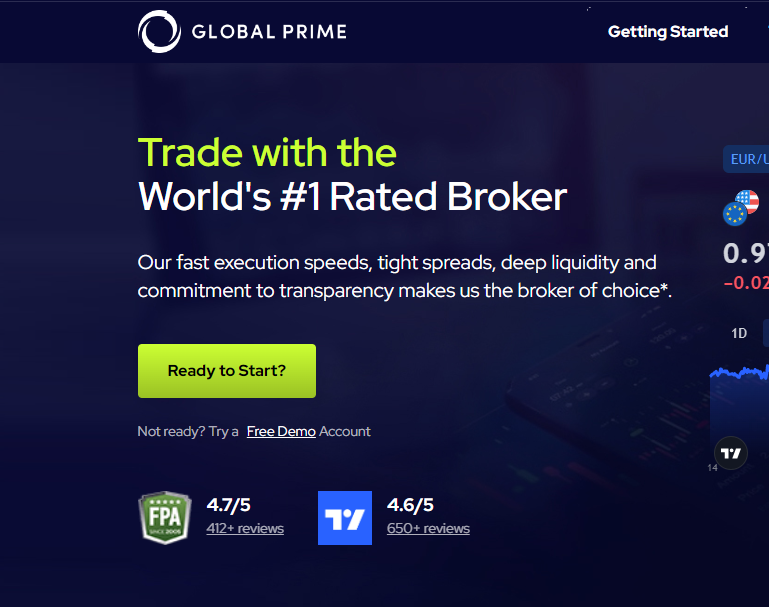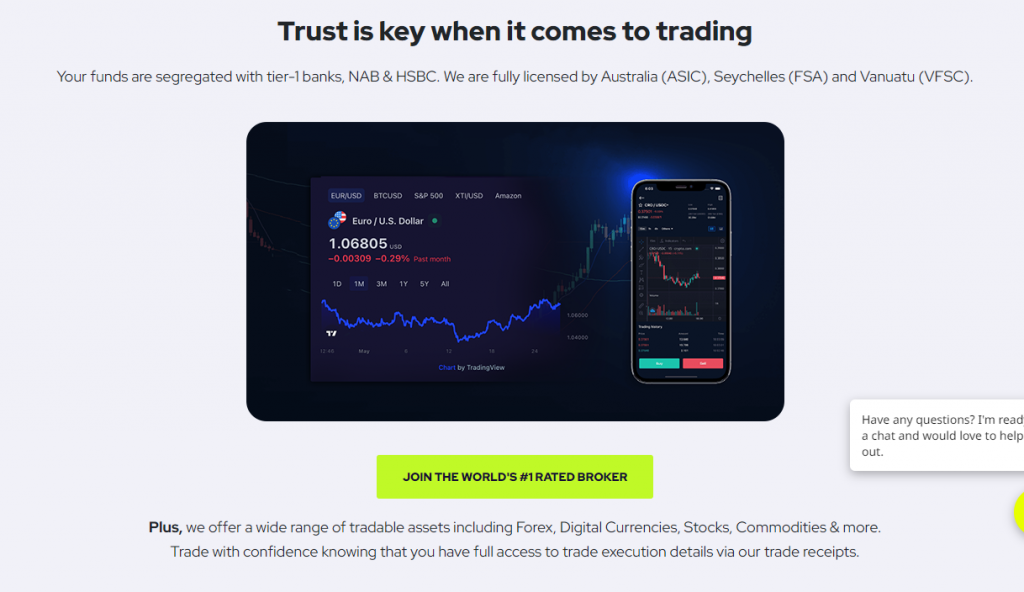Trading Robots vs Expert Advisors (EAs): Which is better, and which should you use?…
With recent advancements in technology, programming and artificial intelligence, the financial and trading industry is not missing out. Many traders are now turning to Trading Robots and Expert Advisors (EAs) to execute their trading strategies.
While the two options offer benefits to traders, they also have their own unique features, pros, and cons.
In this blog post, we will explore the differences between Trading Robots and Expert Advisors, their benefits and limitations, and provide scenarios where one may be more suitable than the other.
What is a Trading Robot?
A Trading Robot is also known as an algorithmic trading system. It is a software program that automates the process of trading financial instruments, such as stocks, currencies, and commodities.
Trading Robots use predefined rules to analyze market data, identify trading opportunities, and buy and sell instruments based on these rules without human intervention.
They can be fully automated or semi-automated, depending on the level of user involvement required.
The main advantage of Trading Robots is their ability to process large amounts of data quickly and make trades in real time, which can lead to increased efficiency and profitability in trading.
What is an Expert Advisor in Trading?
An Expert Advisor (EA) is an automated trading system for the MetaTrader platform, a popular trading platform used by forex traders.
EAs are software programs that use algorithms and predefined rules to analyze market data, identify trading opportunities, and automatically execute trades without requiring human intervention.
Expert Advisors are designed to work within the parameters set by the trader, allowing for flexibility and customization of trading strategies. They can be programmed to trade a variety of financial instruments, including currencies, stocks, and commodities.
EAs are a popular choice for traders who want to automate their trading strategies and take advantage of the benefits of algorithmic trading.
Trading Robots vs Expert Advisors: Key Differences
1. Platform
Trading Robots can be used on a variety of trading platforms, while EAs are specifically designed for use on the MetaTrader platform.
2. Programming Language
Trading Robots can be programmed with many languages, while EAs are programmed in the MQL (MetaQuotes Language) language, which is consistent, but restricted to the MetaTrader platform.
3. Market Analysis
Trading Robots are capable of analyzing market data from a variety of sources, while EAs are limited to the market data available through the MetaTrader platform.
4. Extra Functionality
Trading Robots can perform a wider range of functions, such as backtesting and optimization, while EAs are primarily designed for automated trading.
5. Cost
Trading Robots can be more expensive than EAs, as they usually need custom programming or licensing fees for third-party software.
On the other hand, Expert Advisors are usually included with the MetaTrader platform and may be available for free or at a lower cost than Trading Robots.
Features and Pros of Trading Robots
1. Trading Robots are more flexible than EAs in terms of customization and strategy development, as they can be programmed to work with different trading platforms and programming languages.
2. These robots can be programmed to trade a wider range of financial instruments, including forex, stocks, futures, and options.
3. They can perform backtesting and optimization. This allows traders to refine their strategies and test them under different market conditions.
4. Trading Robots can be scaled to manage larger trading accounts and portfolios, as they are designed to work with multiple instruments and markets simultaneously.
5. While real humans can be influenced by emotions and have their judgement clouded, trading robots operate undistracted, based on logic and market data.
Also Read: MetaTrader 4 Vs. MetaTrader 5: Pros And Cons, Which Should I Use?
What Are the Cons and Disadvantages of Trading With Robots?
1. Total Reliance on Programming
Trading Robots rely heavily on programming and coding, which can be complex and time-consuming to develop and maintain. Traders who lack programming skills may struggle to create effective and profitable trading strategies.
2. Lack of Human Judgment
This goes both ways. While it’s a good thing, it can also be a not-so-good thing. Since trading robots rely on pre-programmed rules and algorithms, they may not always account for unexpected market events or changes in market conditions.
This can result in losses or missed opportunities if the robot’s strategies do not adapt to changing circumstances.
3. System Failure
Trading Robots can be vulnerable to technical failures, such as bugs, glitches, or connectivity issues, which can result in losses or missed trades.
4. High Costs
Developing and using a Trading Robot can be expensive, as it may require advanced programming skills, specialized software, and ongoing maintenance and updates. Aside from that, some brokers may also charge extra fees for using automated trading systems.
Features and Pros of Expert Advisors (EAs)
1. Expert advisors can be programmed to take into account individual trader preferences, risk tolerance, and market conditions, and can be adjusted and optimized as needed.
2. EAs can also incorporate human judgment and discretion into their trading strategies, which can be valuable in uncertain or rapidly changing market conditions. This can help to minimize risk and maximize returns.
3. They can be better suited for specific markets or asset classes, such as stocks, forex, or options, as they can be customized to take into account the unique characteristics of each market.
4. For the average trader getting an Expert Advisor is way easier and less expensive than developing a Trading Robot. There are many EAs on the MetaTrader 4 platform, which traders can download for free.
Cons and Limitations of Expert Advisors (EAs)
1. Limited automation
Expert Advisors may not be fully automated, as they may require some manual intervention or monitoring from the trader. This can limit their effectiveness and efficiency, especially for traders who want a more hands-off approach to trading.
2. Limited Backtesting Capabilities
While EAs can be backtested to evaluate their performance under historical market conditions, they may not account for all relevant market factors or unexpected events that can impact trading outcomes in real-time.
3. Dependence on Market Conditions
Expert Advisors may not perform as well in certain market conditions, such as highly volatile or unpredictable markets. Traders may need to adjust their strategies or use alternative trading methods during these periods.
Trading Robots vs Expert Advisors: Which Should I Use?
Trading Robots May Be Better in Situations Where:
1. There is a high volume and frequency of trades.
2. You need to execute complex trading strategies that may not be possible with Expert Advisors.
3. You’re a newbie trader yet to have technical knowledge in developing and executing trading strategies.
4. You need to trade without human intervention. This can be useful if you’re a trader who wants a hands-off approach to trading.
Expert Advisors (EAs) May Be Better in Situations Where:
1. You need to take advantage of specific market conditions or trading opportunities, which can be difficult to achieve with Trading Robots.
2. You want the automated trading to be customized to match your specific trading style and preferences.
3. You need to take into account news events and market sentiments, which can be useful in certain trading situations.
Although EAs lack emotional intelligence, they can still be programmed to incorporate human judgment and discretion into their trading strategies. You can’t do something like this with a Trading Robot.







